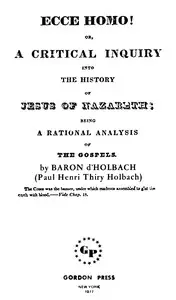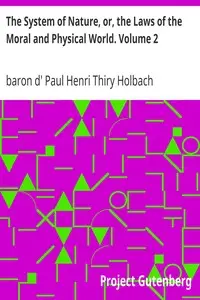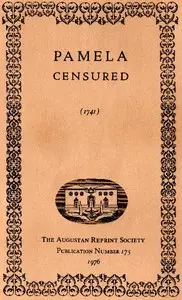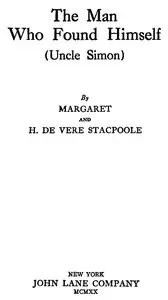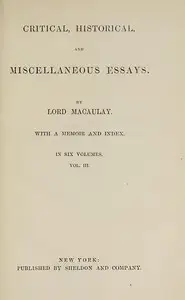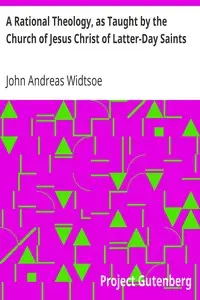"Superstition in All Ages" by Baron d' Paul Henri Thiry Holbach is a philosophical treatise written in the early 18th century. The work critically examines the origins and implications of superstition and religious dogmas through a historical and rational lens. It reflects the author's conviction that superstitions arise from ignorance and fear, and it argues for a rational inquiry into the beliefs that govern human behavior. The beginning of the text introduces Jean Meslier, a Roman Catholic priest who renounced religion after decades of service and left behind a manuscript arguing against religious dogmas, titled "Common Sense." The opening details Meslier's life, his pious actions, and the conflicts he faced with church authorities, establishing the foundation of his philosophical views. It highlights his intent to expose the contradictions of theology and the irrationality of faith, setting the stage for a critique of superstitions that persist throughout history. (This is an automatically generated summary.)
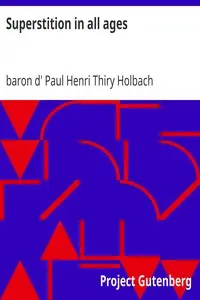
Superstition in all ages
By Paul Henri Thiry Holbach
"Superstition in All Ages" by Baron d' Paul Henri Thiry Holbach is a philosophical treatise written in the early 18th century. The work critically exa...
Paul-Henri Thiry, Baron d'Holbach, known as d'Holbach, was a Franco-German philosopher, encyclopedist and writer, who was a prominent figure in the French Enlightenment. He was born Paul Heinrich Dietrich in Edesheim, near Landau in the Rhenish Palatinate, but lived and worked mainly in Paris, where he kept a salon. He helped in the dissemination of "Protestant and especially German thought", particularly in the field of the sciences, but was best known for his atheism, and for his voluminous writings against religion, the most famous of them being The System of Nature (1770) and The Universal Morality (1776).


